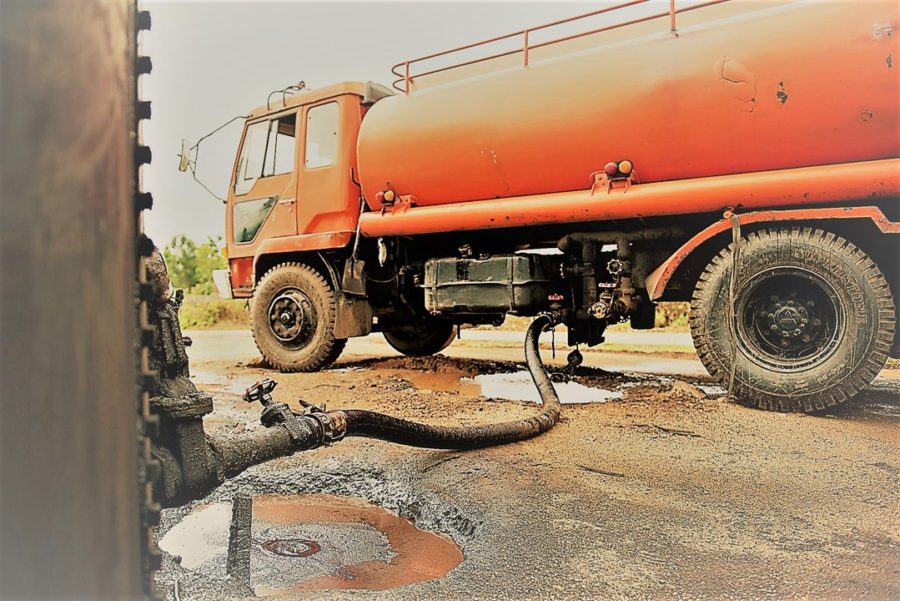The world still needs oil
“We need petrol”, he said.
The car suddenly veered off the road and took us down an alley, squeezed between the cramped market stalls. Ahead was a chaotic crowd of motorbikes and rickshaws.
My grandfather pushed forward aggressively using his elderly-man status. Standing in front of the crowd stood a man. He started to fill my grandfather’s tank in front of the crowd from what looked like a portable oil truck. Just before he had managed to fill the tank of my grandfather’s car completely, the pump cut out.
“That’s was lucky” my grandfather laughed. “Those people will have to come back on Wednesday”.
My grandfather handed over a dirty wad of Indian rupee notes and the man hurriedly stuffed them into his money bag. The crowd was angry.
Decades later, I filled up that same car in a brand-new petrol station on that very spot. Times have change in India!

Oil is used for everything. It’s used to generate electricity. Plastic is made from it, which is then found in cars, houses, toys, computers and clothing. The tyres on your car, the asphalt on the road, paraffin wax, fertiliser, detergents, packaging, surfboards, paint and carpet all come from oil. It is the input for production for practically everything. Our global economy runs on it.
But since the start of October, oil prices have dropped from $86 dollar per barrel to just over $60 today. Apparently, output has risen much faster than supply: US shale production is soaring, while Saudi and Russia have hiked their output. Hedge funds have also more than tripled their short positions on oil since October, which are bets against the oil price.
There are also concerns of slowing global economic growth which isn’t great. Less growth means less consumption, which means less demand for oil and so oil prices fall even lower. The unexpected US-China trade war isn’t helping the growth outlook either. Even those rose-tinted official Chinese numbers don’t look so good these days.

But is it really that bad for oil?
The use of renewable energy has increased significantly and will continue to grow rapidly. In fact, it’s the fastest growing energy source globally. On a per capita basis, declines in oil consumption will be achieved, thanks to the electrification of cars and technological advances that will make renewable energy sustainable.
However, what is the point in talking on a per capita basis when the world’s population is going to be one-fifth larger than it was in 2015. That’s an extra one billion people added to the globe, who will represent a sizeable carbon footprint even in this era of de-carbonisation.
The biggest threat to global warming isn’t therefore oil, but population growth. There is even a research report from Lund University in Sweden that argues that having children is one of the most destructive things you can do the environment. They argue that having just one less child per family can save an average of 58.6 tonnes of carbon emissions per year.
Perhaps this is a stretch too far. But, as the chart below shows, even though our consumption of renewable energy will grow substantially, so will our consumption of oil and a lot of that is to do with population growth.

The other issue is that this increase in oil consumption is going to happen primarily in the emerging markets, where population growth is occurring the most. These are economies that are undergoing an extraordinary economic transformation. Yet, they are still many decades away from where they want to be. They are going to need a lot of fuel to get there and support their populations. It’s unsurprising that the biggest increases will come from Asia.


There have been attempts to offset this trend such as the landmark Paris climate agreement that was signed in 2016. But since then, global carbon emissions have surged to record levels: the International Energy Agency reported that energy-related emissions climbed 1.4% to 32.5 giga-tonnes, only a year after the agreement was signed. That’s the equivalent to adding 170 million cars to the road, according to the agency.
Declines are happening in some countries such as the US, and these are set to continue. But unfortunately, they won’t happen in the right places. They will be offset by huge increases in carbon emission from India and China.

I’m not a climate change rejector. It’s happening and we only have ourselves to blame. However, the assumptions we make on how quickly the global economy can ween itself off oil are unrealistic. Our whole economic infrastructure is reliant on oil. Furthermore, technological advances and the digital revolution are only going to help make oil an even more competitive energy source.
We could apply a global carbon tax. Some believe this is inevitable with the signing of the Paris agreement. However, the recent fuel-tax protests in Paris show just how difficult such measures are. To make drastic cuts, we would need to cut quality of life that we live. That’s not going to happen even with climate change because humans are myopic.
The truth is that regardless of what the economic climate is today, we might be at the beginnings of a new ultra-long-term oil super cycle. Hopefully we will shove off this addiction along with cigarettes in the next hundred years. Until then, the world needs oil.









